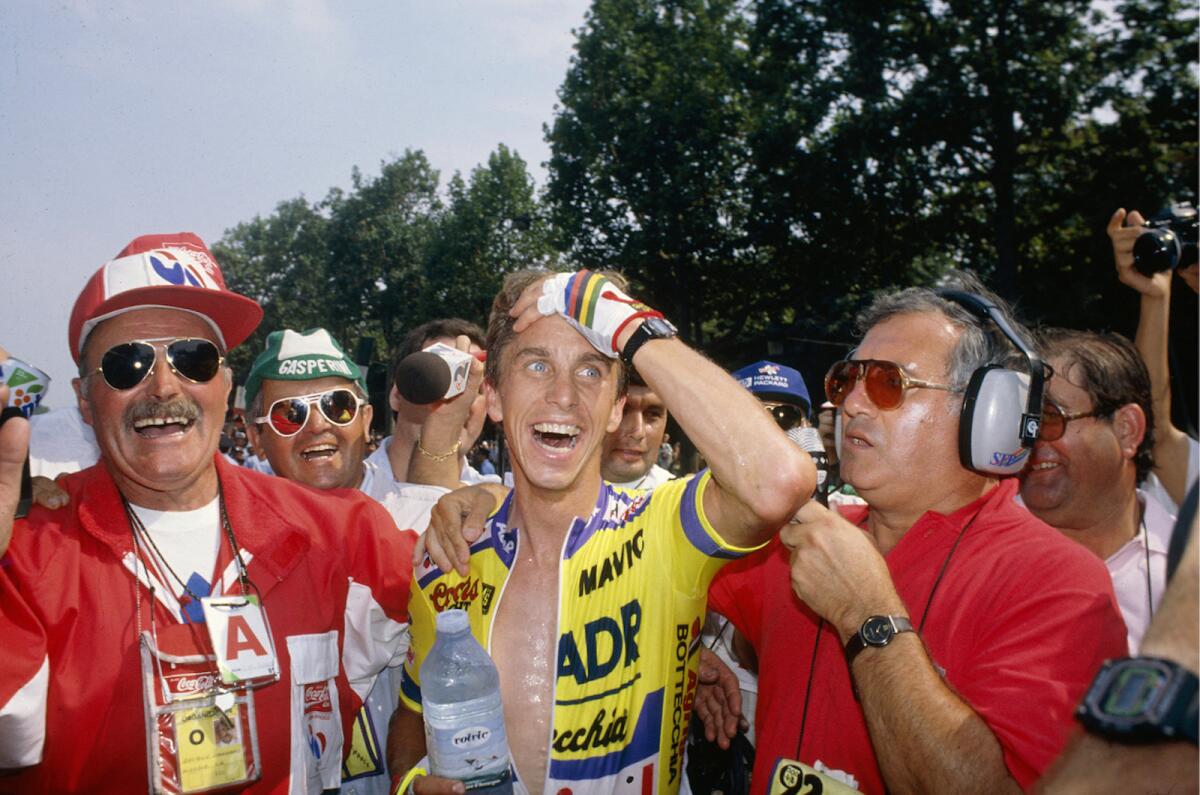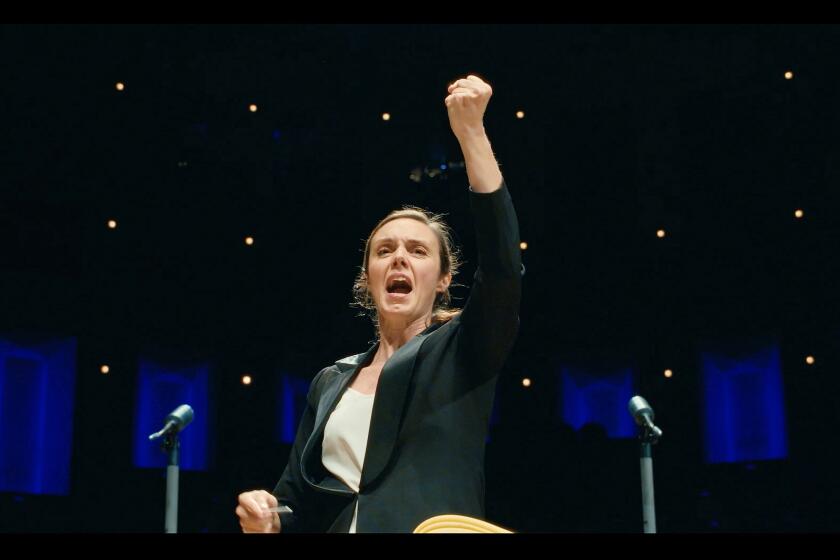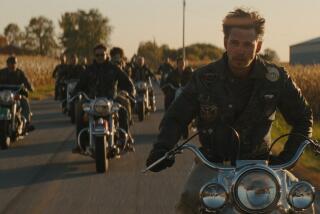Review: ‘The Last Rider’ revisits the trials and triumphs of 1980s cycling great Greg LeMond

There’s a ton of captivating archival footage throughout the sports documentary “The Last Rider,” which chronicles the career of legendary cycling champ Greg LeMond and, especially, his come-from-behind win in the 1989 Tour de France. It’s a loving, rousing look at an amazing athlete.
Yet for all its gripping, nail-biting action clips, there’s one moment in the film that rises above the rest — and it’s not set on the race course. It’s the heartfelt, heart-stopping testimony of LeMond’s longtime wife, Kathy, in which she recounts a near-tragedy the family endured in 1987.
That was when LeMond, the year after he became the first American to win the Tour de France, was shot by his brother-in-law, Patrick, during a horrible turkey-hunting accident. LeMond landed in a Davis, Calif., hospital with approximately 60 iron shotgun pellets embedded in his body (resulting in overwhelming blood loss) and was saved on the operating table.
Later, while keeping vigil for her husband, the eight-months-pregnant Kathy went into preterm labor and ended up in a nearby medical center to prevent an early delivery. Compounding matters, Patrick, distraught over the shooting, attempted suicide and was taken to a local psychiatric ward. Kathy tells this complex, harrowing story in a way that’s poignant, propulsive and unforgettable.
Filmmaker Maggie Contreras’ new film “Maestra” follows a cadre of female conductors with dreams of winning La Maestra, the first international conducting competition solely for women.
There’s ample room for this kind of emotional deep dive, but, despite the LeMonds’ eloquent turns as interview subjects, director Alex Holmes (“Maiden”) doesn’t sufficiently explore perhaps the most troubling and profound aspect of Greg’s history: that at 13, he was sexually abused by a (male) family friend. There’s discussion of his ongoing feelings of shame and how cycling was in some ways an antidote to that. But the deeper psychological scars and how he dealt with the experience over time, as well as the depression he later endured, feel underexamined.
More details of how LeMond regained his physical abilities after the near-fatal shooting (about 30 unremovable pellets remained in his body) plus a more exact look at how he trained for and survived the grueling day-to-day of the Tour de France (a race he ultimately won three times) also might have enhanced the narrative.
LeMond is a fascinating character — engaging, driven, evenhanded, humble — and he’s front and center through most of the film. But Holmes fills the doc with so much footage from the 1989 Tour de France that, although a story centerpiece, it sometimes slows the film’s pace (and pulls a bit of focus from LeMond) when it should be gaining momentum. Only toward the end of its recounting of the 23-day, 21-stage race does it effectively pick up steam. The movie then joyously revels in LeMond’s triumph (by eight seconds) over his chief opponent, the boorish French super-cycler Laurent Fignon (who died in 2010 at age 50).
Yes, there are many exhilarating, you-are-there moments set from Paris to the Pyrenees and the French Alps that are worth revisiting, but an overall trim of these would have helped.
Aside from the stirring recent interview clips with Greg and Kathy, there’s input from Cyrille Guimard, the onetime French cyclist who coached LeMond, Fignon and five-time Tour de France winner Bernard Hinault (who, as covered here, betrayed teammate LeMond during the 1986 Tour). We also hear from 1988 Tour winner Pedro Delgado, who competed against LeMond and Fignon in the 1989 contest.
They all offer vital and enlightening commentary, though adding a few more recent cycling participants and observers into the mix might have given the film — and LeMond’s story — greater context. (There is only passing reference to disgraced cyclist Lance Armstrong, which is odd since LeMond was a vocal opponent of performance-enhancing drugs and Holmes directed a 2014 doc about Armstrong.)
That said, if “The Last Rider” may prove a bit hyper-focused for the less initiated viewer, sports and pro cycling enthusiasts should find it an inspiring and transporting journey.
'The Last Rider'
In English, French and Spanish with English subtitles
Rating: PG-13, for thematic elements and brief strong language
Running time: 1 hour, 42 minutes
Playing: Starts June 23, Laemmle Monica Film Center, Santa Monica; AMC Burbank Town Center 8; Laemmle Town Center 5, Encino; AMC Rolling Hills 20, Torrance
More to Read
Only good movies
Get the Indie Focus newsletter, Mark Olsen's weekly guide to the world of cinema.
You may occasionally receive promotional content from the Los Angeles Times.











